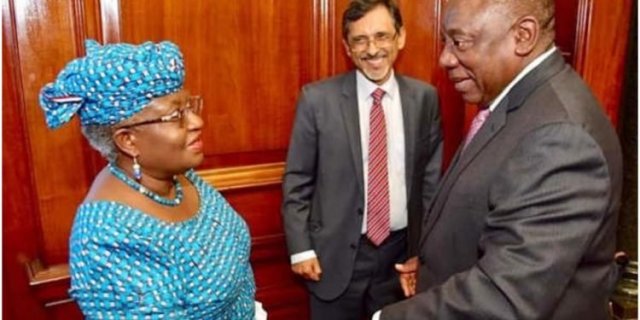Nigeria’s e former minister of finance coordinating minister for the economy, Dr. Ngozi Okonjo-Iweala has been appointed a member of South Africa’s presidential economic advisory council.
The Council met in Pretoria on Friday, February 6 with President Cyril Ramaphosa presiding.
It was learnt that the council was set up in response to the country’s economic challenges, which recently slumped into its second recession in two years.
Speaking at the meeting, Ramaphosa said, “This is your meeting as a council. You have been working in the intervening period and you are going to be making presentations. Now, as Advisory Council, you have set the agenda for this meeting yourself and you have identified various issues that you want to address us on. It is quite clear that a lot of work has been done since we last met.
“This meeting is really your collective response on the economic challenges our economy is facing right now. The diversity of ideas is what I appreciate. Now, there have been a number of developments that have taken place in our country, which I am not going to bore you with. Of course, the immediate challenge we are facing now is the energy crisis.”
Okonjo-Iweala said the meeting discussed “sources of growth for the South African economy and win-win economic interactions with the continent.”
The former minister who shared some of the photographs taken at the meeting on her Twitter handle wrote: “With President Ramaphosa, members of cabinet, and members of the Presidential Economic Advisory Council in Pretoria discussing sources of growth for the South African economy and win-win economic interactions with the continent.”
It would be recalled that the South African economy contracted 1.4 per cent in the fourth quarter of 2019, according to official statistics released on Tuesday, far outpacing analyst forecasts of a 0.2 per cent decline.
The contraction came after a 0.8 per cent drop in economic output during the previous quarter, leading to South Africa’s second recession — defined as two quarters of negative growth since 2018.




















































